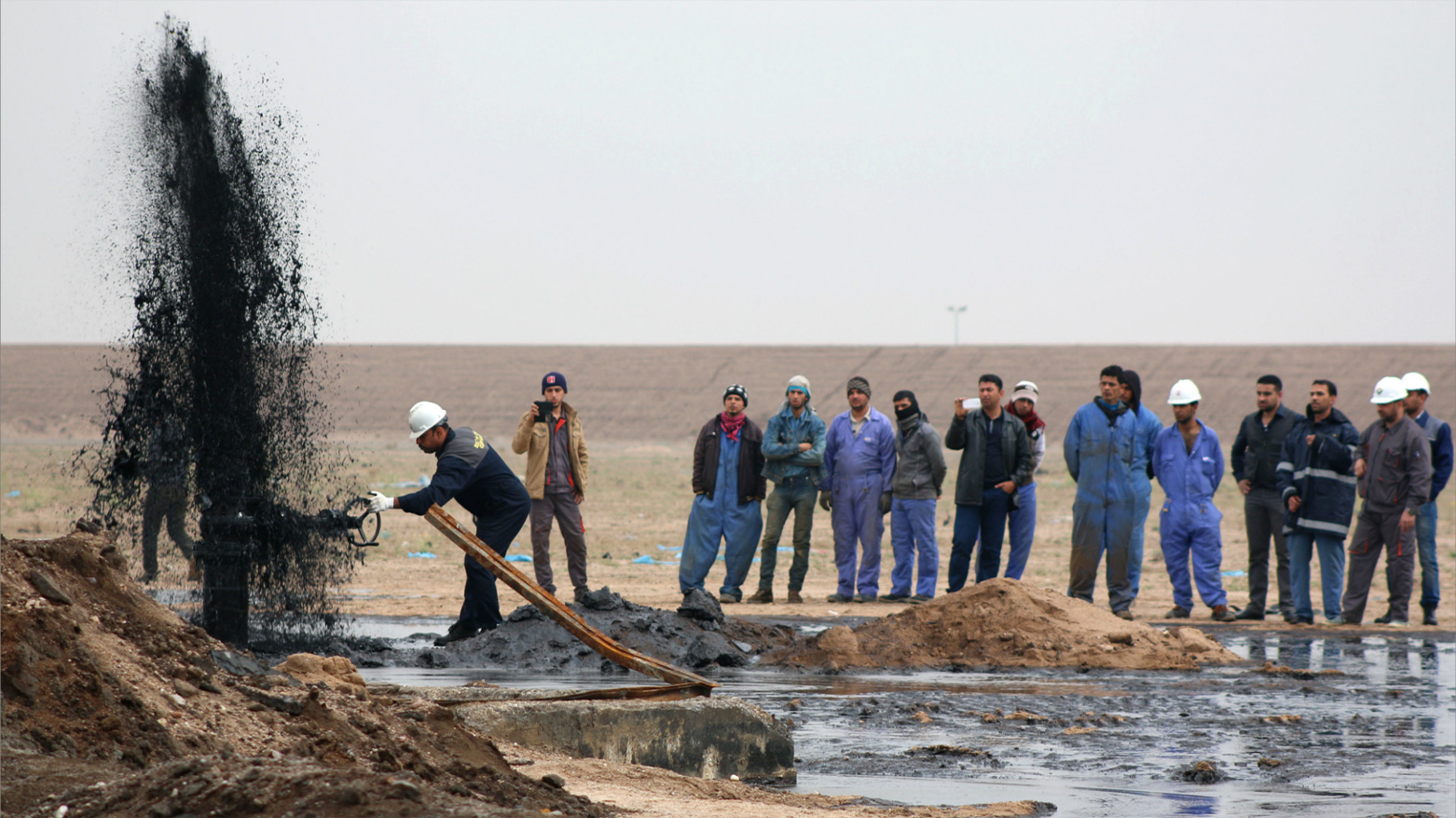Iraq Plans 6M bpd Oil Boost by 2029
Iraq’s Oil Ministry announced an imminent deal with BP to boost production in Kirkuk, raising concern in Erbil over the lack of consultation with KRG, especially given Kirkuk’s status as a Kurdistani territory outside the Region’s administrative control.

ERBIL (Kurdistan24) – Iraq’s Ministry of Oil announced plans to raise national oil production to over 6 million barrels per day (bpd) by 2029, while confirming it is finalizing a contract with British energy giant BP to develop four major oil fields in Kirkuk—one of the territories constitutionally claimed by the Kurdistan Region but currently outside KRG administration.
Speaking to the Iraqi News Agency (INA) on Sunday, Deputy Oil Minister Basim Mohammed Khudair outlined the ministry’s ambitious five-year plan, which aims to boost oil and gas production through enhanced exploration and drilling efforts.
“The ministry is working to achieve this goal through projects across all provinces, leveraging exploration activities by the Oil Exploration Company, as well as drilling and production operations under the six licensing rounds,” he said.
The centerpiece of Iraq’s strategy includes the Integrated South Gas Development Project at the Artawi field and, more notably, the soon-to-be-signed agreement with BP to expand production in Kirkuk. According to Khudair, a final contract with the British oil major is expected within days.
However, the unilateral nature of this agreement—reached without consultation or coordination with the KRG—has sparked renewed concerns in Erbil, particularly given the sensitive status of Kirkuk. The oil-rich province is one of the Kurdistani territories outside the KRG’s administrative control, yet it remains central to Kurdish claims under Article 140 of the Iraqi Constitution, which calls for normalization, a census, and a referendum to determine its final status.
Read More: PM Barzani criticizes Baghdad-BP oil deal as 'unconstitutional', calls for coordination
This development also comes at a time when the federal government continues to impede the KRG’s ability to independently export oil, with repeated delays and legal hurdles undermining the Region’s economic stability. Despite ongoing dialogue and temporary agreements, Baghdad has often withheld revenue transfers to the KRG and has yet to resume consistent oil export arrangements from Kurdistan through the Iraq-Turkey pipeline.
Observers in the Kurdistan Region view the federal government’s double standard with growing frustration: while Iraq actively pursues international partnerships to increase exports and production, it places bureaucratic and political obstacles in the path of the KRG’s energy sector growth.
The exclusion of the KRG from the BP deal in Kirkuk underscores a broader pattern of marginalization and raises fresh concerns about equitable resource sharing in Iraq. For the KRG, oil is not just an economic asset but also a critical pillar of its political autonomy. Continued sidelining in national energy planning threatens to further strain relations and undermine trust in federal institutions.
As Iraq moves forward with plans to become a global oil powerhouse, the path to sustainable development and political stability will depend on inclusive governance, respect for constitutional frameworks, and equitable treatment of all regions—including the Kurdistan Region.
